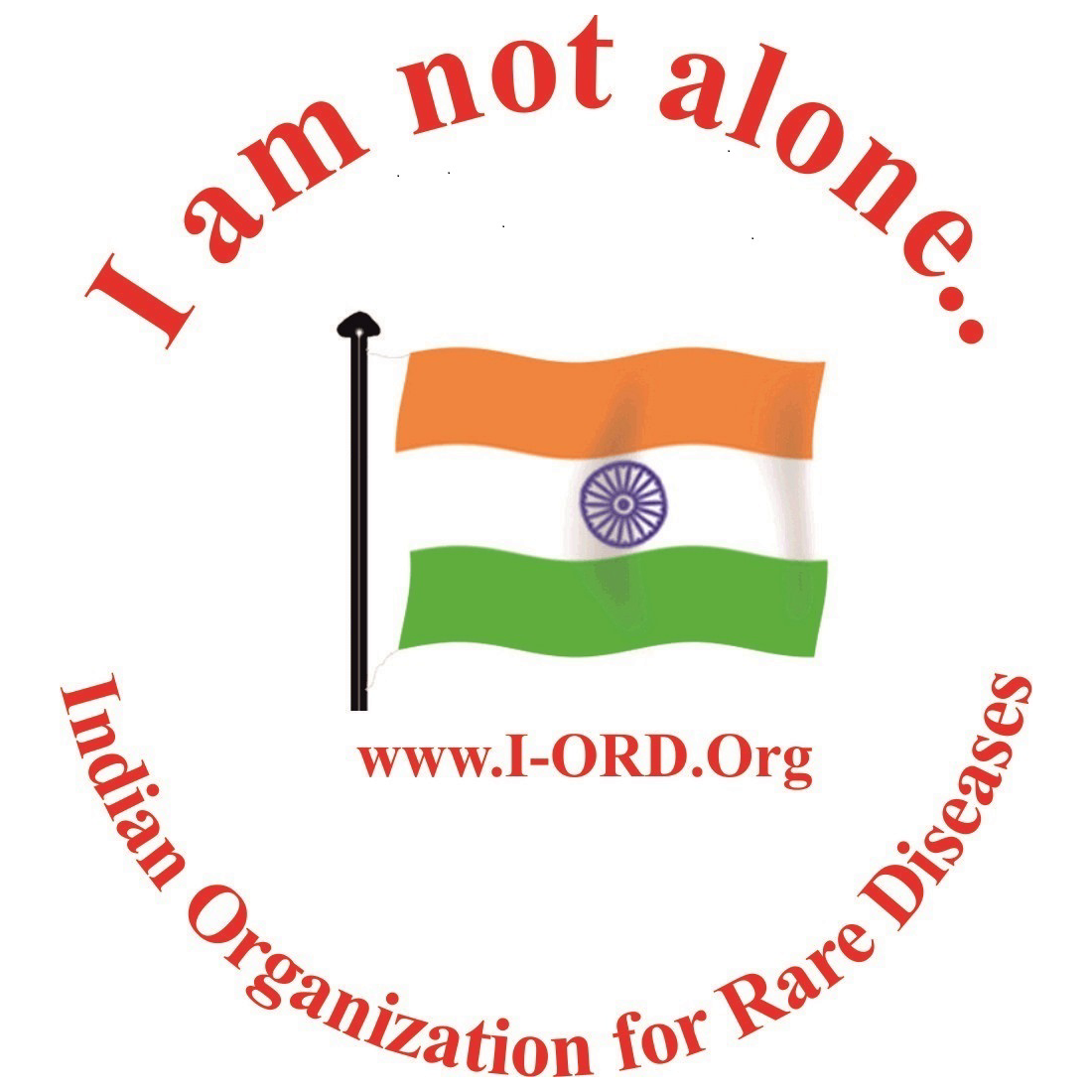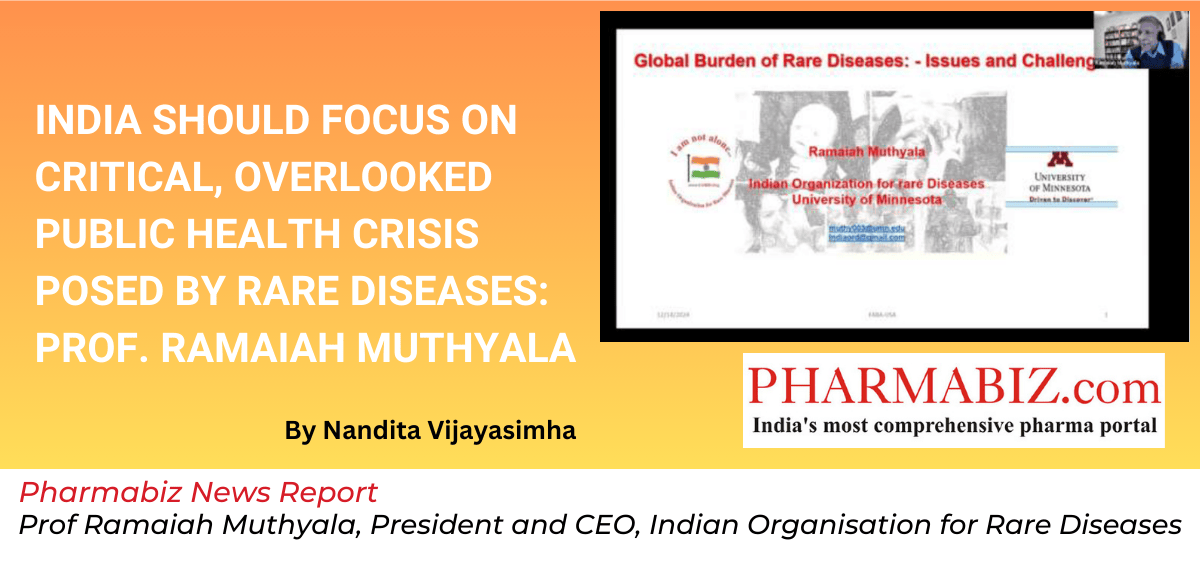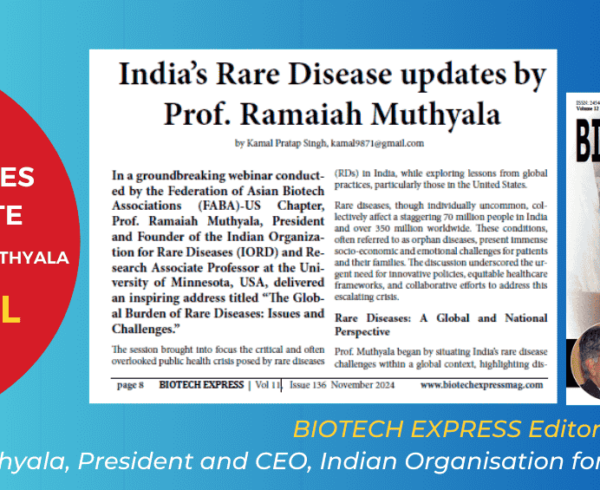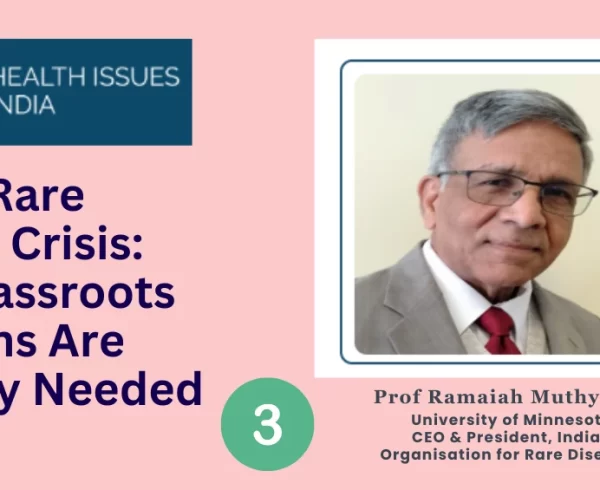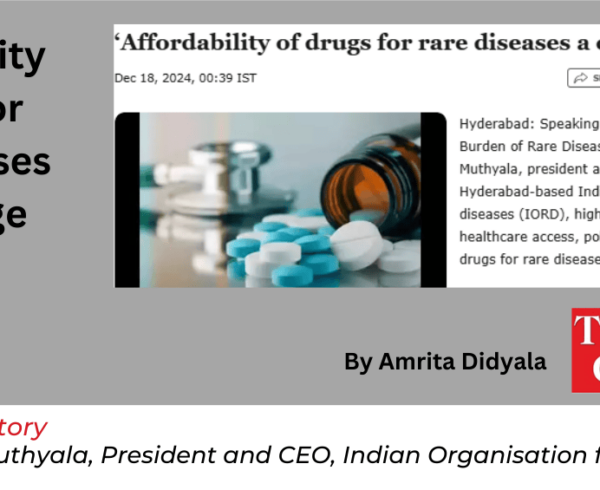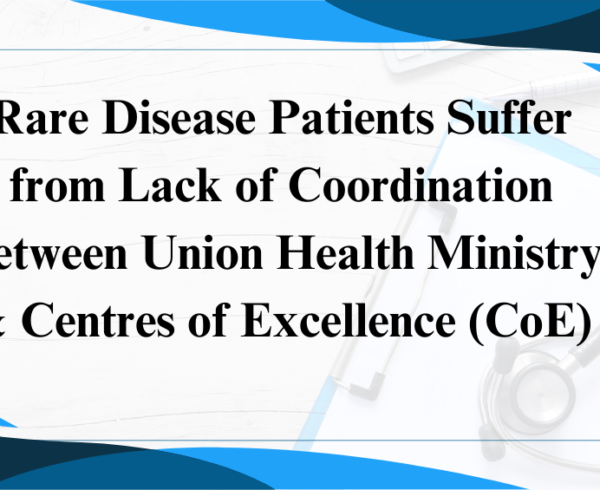ndia needs to focus on the critical and often overlooked public health crisis posed by rare diseases (RDs) in India, while exploring lessons from global practices, said Prof. Ramaiah Muthyala, President and Founder, Indian Organization for Rare Diseases (IORD) and Research Associate Professor at the University of Minnesota, USA.
Rare diseases, though individually uncommon, collectively affect a staggering 70 million people in India and over 350 million worldwide. These conditions, often referred to as orphan diseases, present immense socio-economic and emotional challenges for patients and their families. There is an urgent need for innovative policies, equitable healthcare frameworks, and collaborative efforts to address this escalating crisis, said Prof. Muthyala.
In the US, rare diseases have been a focus of public health policy, with the Orphan Drug Act, 1983 catalyzing significant progress in research, drug development, and patient advocacy. This Act incentivized pharma through tax credits, grants, and extended market exclusivity, leading to the approval of over 1,000 orphan drugs. Despite these advancements, the exorbitant costs of orphan drugs remain a critical issue globally. Therapies like Zolgensma for spinal muscular atrophy cost upwards of $2.1 million per patient, while daily medications for ultra-rare conditions can exceed $250,000 annually. Insurance coverage, though more accessible in high-income countries, often falls short, leaving many families financially devastated.
In contrast, India grapples with even more challenges. It relies on imports for rare disease drugs, which are unaffordable. For instance, Trientine for Wilson’s disease, costs Rs 1.6 crore annually when imported, placing it out of reach for most Indian families, whose average monthly income is under $300, he said.
The rare disease ecosystem in India remains nascent, with limited diagnostic infrastructure, underdeveloped registries, and fragmented policy implementation. Diagnostic delays averaging 7-20 years further exacerbate patient suffering. While government initiatives like the National Policy for Rare Diseases (2021) have been introduced, progress has been slow. Only 48.7% of allocated resources for Centers of Excellence (CoEs) were utilized between 2021 and 2024. Additionally, bureaucratic inefficiencies and a lack of centralized coordination have hindered the policy’s impact, he pointed out.
India now manufactures 450 active pharmaceutical ingredients (APIs) for rare disease therapies, with initiatives like Make in India and the Rs 15,000 crore Production Linked Incentive (PLI) scheme. This has the potential to reduce costs and improve accessibility, though systemic barriers remain, said Prof. Muthyala at the Federation of Asian Biotech Associations (FABA)-US Chapter, addressing on ‘The Global Burden of Rare Diseases: Issues and Challenges’.
To this end, IORD has been at the forefront of transforming India’s rare disease landscape. It fostered global collaborations, enabling India to engage in advanced research, genome editing and genetic therapies to bridge gaps in innovation and treatment accessibility. Additionally, IORD has launched innovative projects like the Rare Disease Counting Pilot Project in Telangana to improve data collection and the Indian Rare Disease Nurses Network, which provides specialized training to healthcare professionals, he said.
Prof. Muthyala highlighted the role of the Office of Orphan Products Development (OOPD) at the FDA, which streamlines research, clinical trials, and regulatory approvals for orphan drugs. Establishing a similar office in India could accelerate progress and ensure treatments are both accessible and affordable. Global collaborations remain a key pathway forward, he noted.
